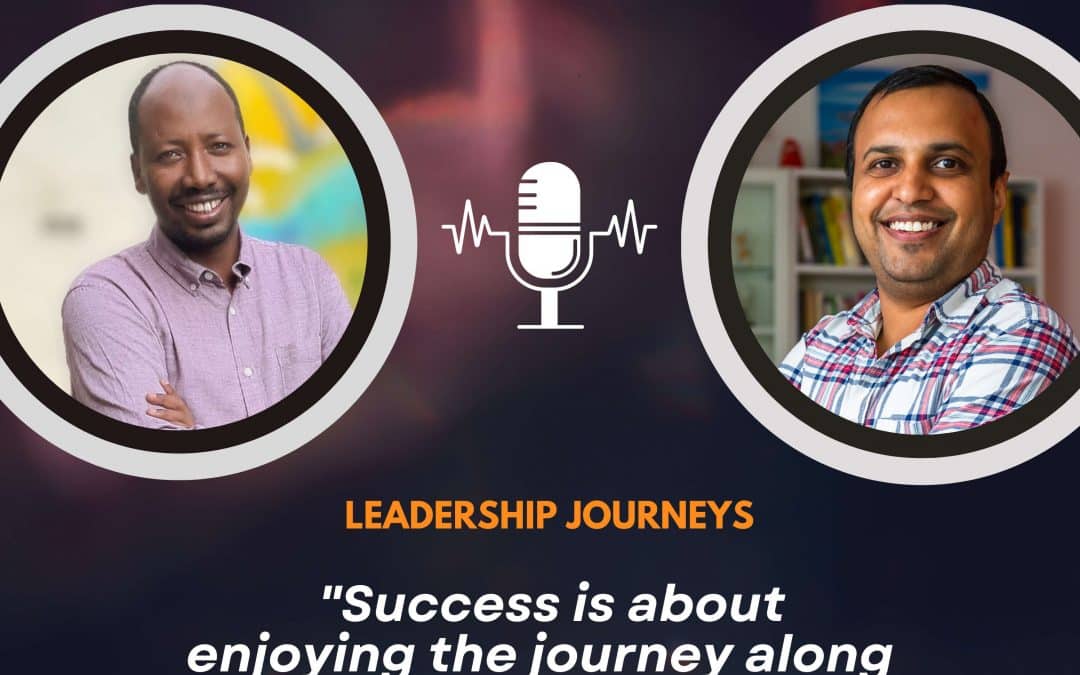This is the Leadership Journey series on the Choosing Leadership Podcast.
I believe we all have a lot to learn from each other’s stories – of where we started, where we are now, and our successes and struggles on the way. With this series of interviews, my attempt is to give leaders an opportunity to share their stories and for all of us to learn from their generous sharing. If you know a leader whom you would like to see celebrated on the show, please send me a message on LinkedIn with their name.
Embark on a riveting journey with Muhammad Idriss, Executive Director for Alight Sudan, as he shares his remarkable rise from humble beginnings to leading one of Sudan’s largest humanitarian organizations.
In this insightful interview, Idriss delves into the profound impact of his early experiences on his decision to pursue a career in humanitarian work.
With over two decades of experience, he offers invaluable leadership lessons, emphasizing the importance of courage, compassion, and continuous learning in navigating the complexities of crisis response.
Discover how Idriss’ unwavering dedication to community engagement and mental well-being inspires both his team and the wider world to drive positive change in the face of adversity.
You can find Mohammed Idriss at the below links
- https://www.linkedin.com/in/mohammedidriss/
- mohammedmanidrissahmed@yahoo.com
In the interview, Mohammed shares
- “I am Muhammad Idriss, Executive Director for Alight Sudan, but I started from a humble Sudanese background.”
- “I joined humanitarian work out of curiosity and because I grew up in a small community where uplifting someone gave hope.”
- “My background in public health led me to volunteer, even though it was a job, to work in displaced population camps.”
- “Every day in humanitarian work is a combination of devastation, aspiration, and hope.”
- “It takes great courage and character to make tough choices in humanitarian work.”
- “Listening to people, regardless of education or experience, teaches us something new every day.”
- “We need to balance engaging at a high level with understanding the needs of our people on the ground.”
- “In humanitarian work, co-creation with the community places us in a better position to understand their needs.”
- “Continuous learning, listening, and adapting are essential on this journey of humanitarian work.”
- “As leaders, we must prioritize mental health, teamwork, and supporting one another, especially in challenging environments.”

